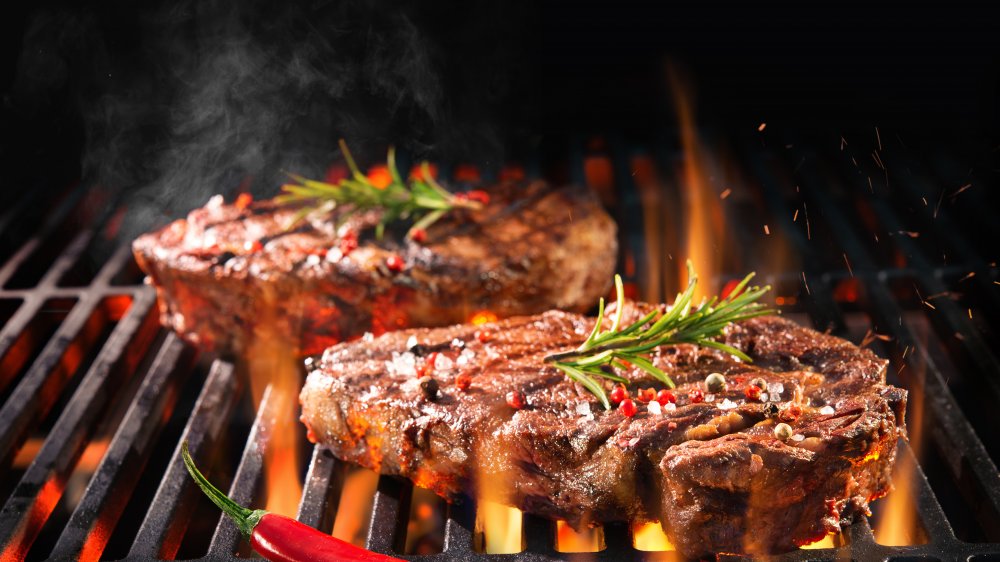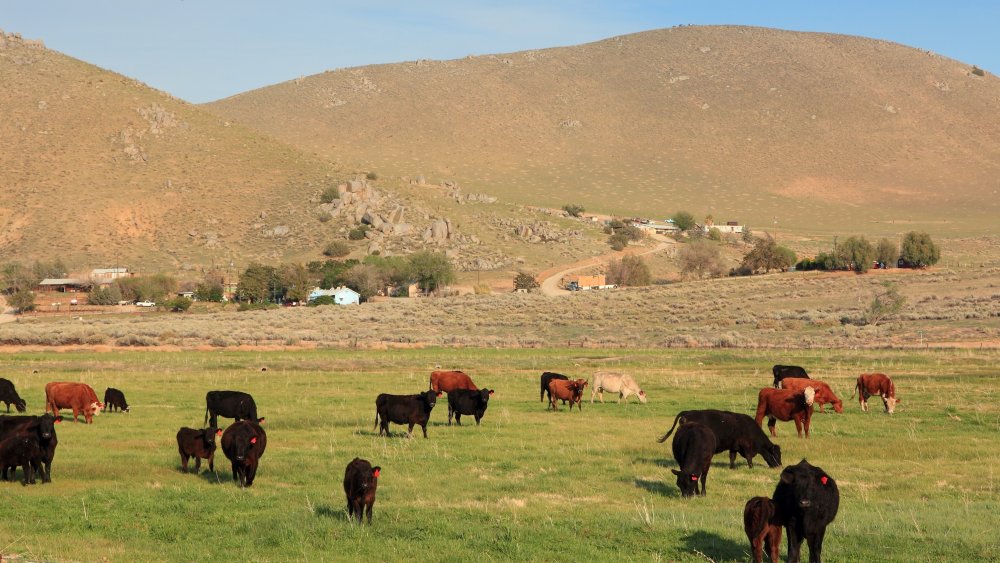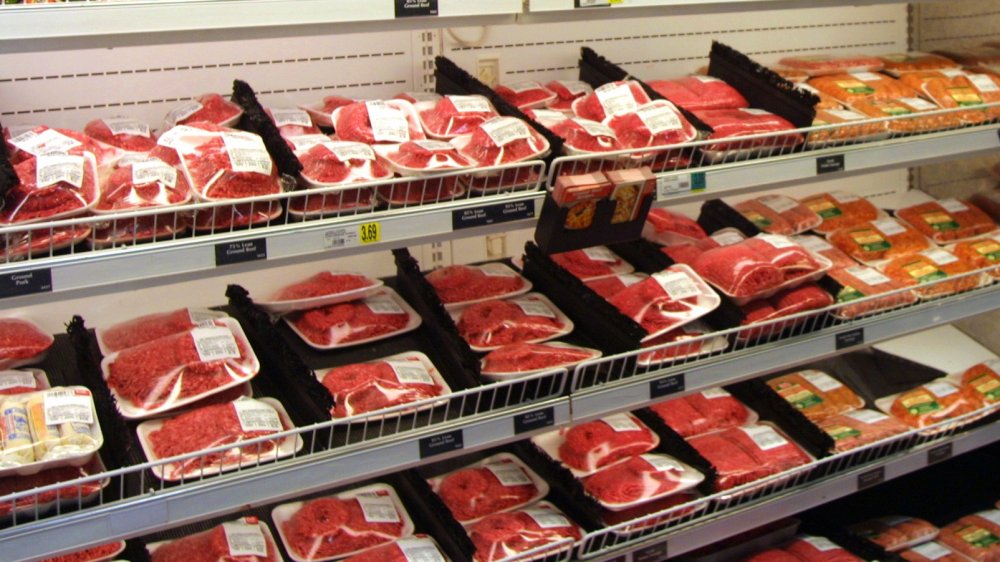The Real Reason Beef Prices Are Skyrocketing Right Now
Something weird is happening in our supermarket meat section, and it has to do with the price of beef.
While we had originally expected the price of beef to fall because China isn't importing any at the moment, and because a projected economic slowdown means people may not have the appetite for more expensive meats like beef, the opposite has happened. Thanks to the pandemic, people may be heading to groceries less often, but they are also buying more when they're there, so meat processors are making a killing.
The National Chicken Council shows meat sales skyrocketed by an eye-watering 76.9 percent for the week ending March 15. Ground beef made the most money for wholesalers, followed by chicken breasts, pork loin, chuck, and ribeye (via Food Dive). One study reported in Modern Farmer shows that meat sales are up 91 percent compared to the same period last year. And for beef, that means an estimated $180 million bump in sales.
Cattle farmers aren't benefiting from rising beef prices
But the increase in beef demand doesn't mean cattle producers are making more money — in fact, the opposite is true. Food Drive reports that while the wholesale prices for processed beef have gone up by nearly 20 percent, Modern Farmer says live cattle prices have dropped by about 16 percent since February — and people want to know why.
Earlier this month, Iowa Senator Chuck Grassley called on the Attorney General and the Secretary of Agriculture to look into "potential market and price manipulation, collusion, restrictions on competition and/or other unfair and deceptive practices." As Montana Senator Jon Tester tells the Billings Gazette (via Fern's AG Insider), "We're seeing some pretty bad stuff in the livestock market right now. Somebody is taking advantage of the situation. And I think that 'somebody' is industrial packers."
America's beef industry is mostly controlled by just a few companies
Eighty percent of the country's beef industry is controlled by just four companies: JBS, Tyson, Smithfield, and Cargill, and they are being accused of keeping live cattle prices low, and beef prices high. That difference, also called a spread, enables large companies to make big profits — at the expense of the American farmer on one end, and the American consumer on the other. Lawsuits filed against the big four say they are using illegal means of increasing the gap between how much they pay farmers, and how much they charge consumers.
The issue is so serious it is one of the few that can bring both Republicans and Democrats together. It's also increasing the profile of smaller beef producers who are trying to do business outside of the big four by setting up their own platforms like R-Calf. Ranchers are hoping to build a network of local, and smaller-scale meat processors, which would emphasize the importance of regional food systems, and diminish the hold of the meat monopoly in the process. If any good could come out of the pandemic, we hope it will be this.


